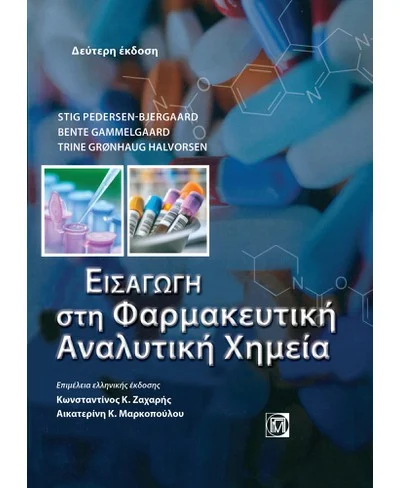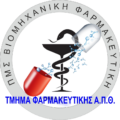Μ5. Applied Pharmaceutical Analysis-Quality Assurance
Purpose/Objectives of the Course
The following thematic units are developed in the course:
Theory of chromatography. Retention mechanisms and chromatographic columns. Learning how to operate HPLC, (system suitability). Quantification of two active substances in a colloidal solution by HPLC. Quantification by HPLC of an active substance with an internal standard. Theory of mass spectrometry. Mass spectrometry of natural products (ESI-MS APCI-MS on flavonoids and their glycosidic derivatives, tannins, procyanidins, iridoids, saponins, alkaloids). Gas chromatography coupled with mass spectrometry in the analysis of essential oils, fatty acids, and alkaloids. Determination of active substance by ESI-LC/MS (positive/negative mode). Sample purification methods, Solid Phase Extraction (SPE) on biological fluid sample/active substance (cortisol) recovery, use of internal substance template. Validation of analytical methods, objectives of method validation.
Coordinator
Teachers
| Image | Name | Designation | Contract Info | Social Links |
|---|---|---|---|---|
 |
Kafkala Styliani | MSc | ||
 |
Karioti Anastasia | Associate Professor of Pharmacognosy | akarioti@pharm.auth.gr 2310990356 | |
 |
Kouskoura Maria | MSc, PhD | ||
 |
Manousi Natalia | MSc, PhD | ||
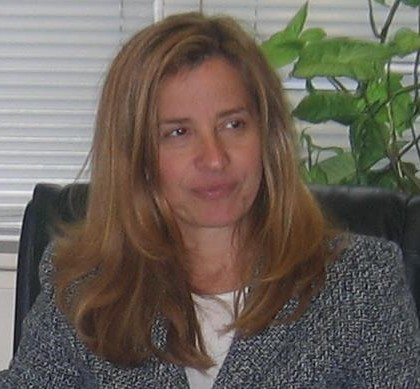 |
Markopoulou Aikaterini | Professor of Pharmaceutical Analysis | amarkopo@pharm.auth.gr 2310997665 | |
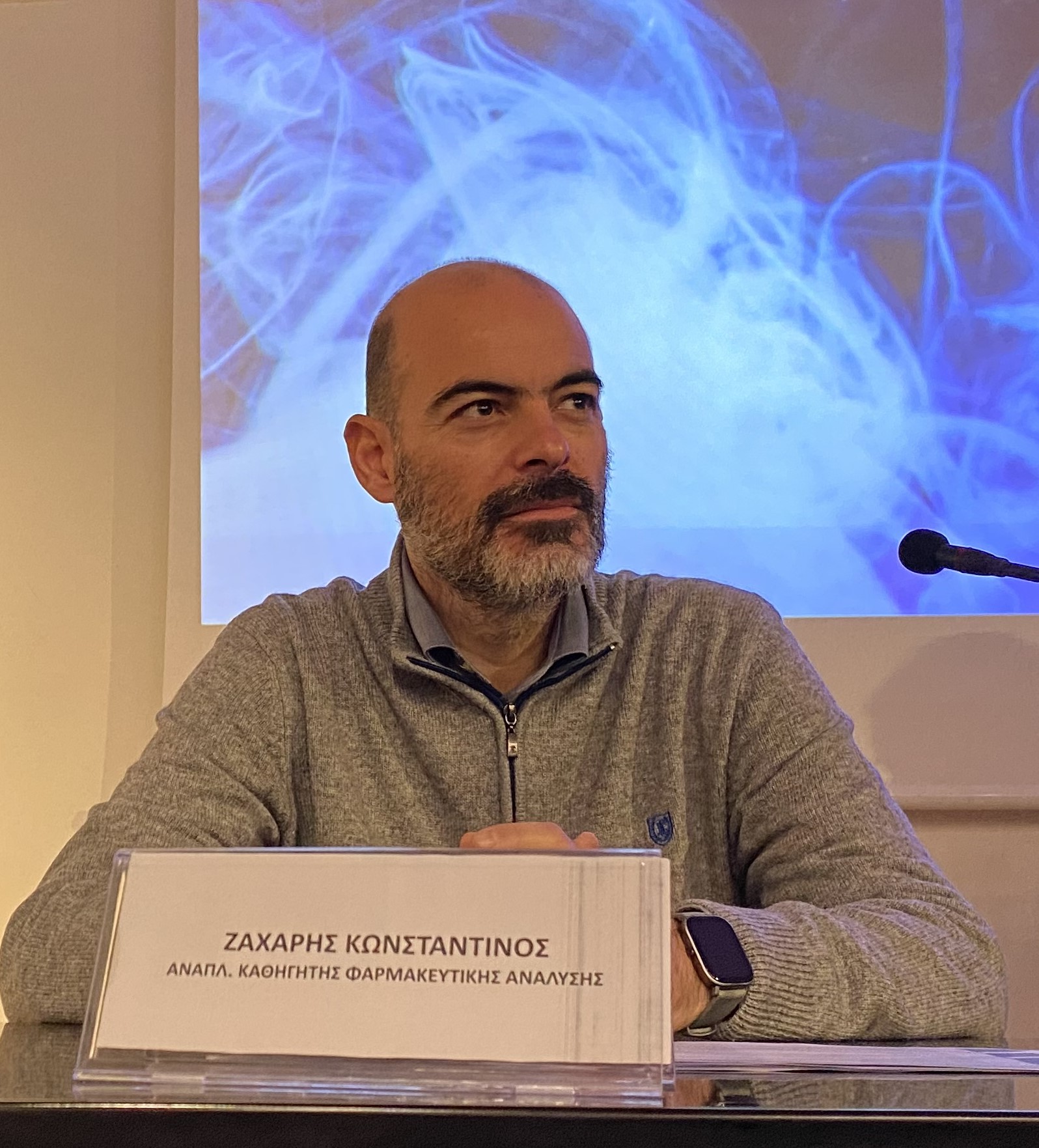 |
Zacharis Constantinos | Associate Professor of Pharmaceutical Analysis | czacharis@pharm.auth.gr 2310997663 |
Teaching Assistants
| Image | Name | Designation | Contract Info | Social Links |
|---|---|---|---|---|
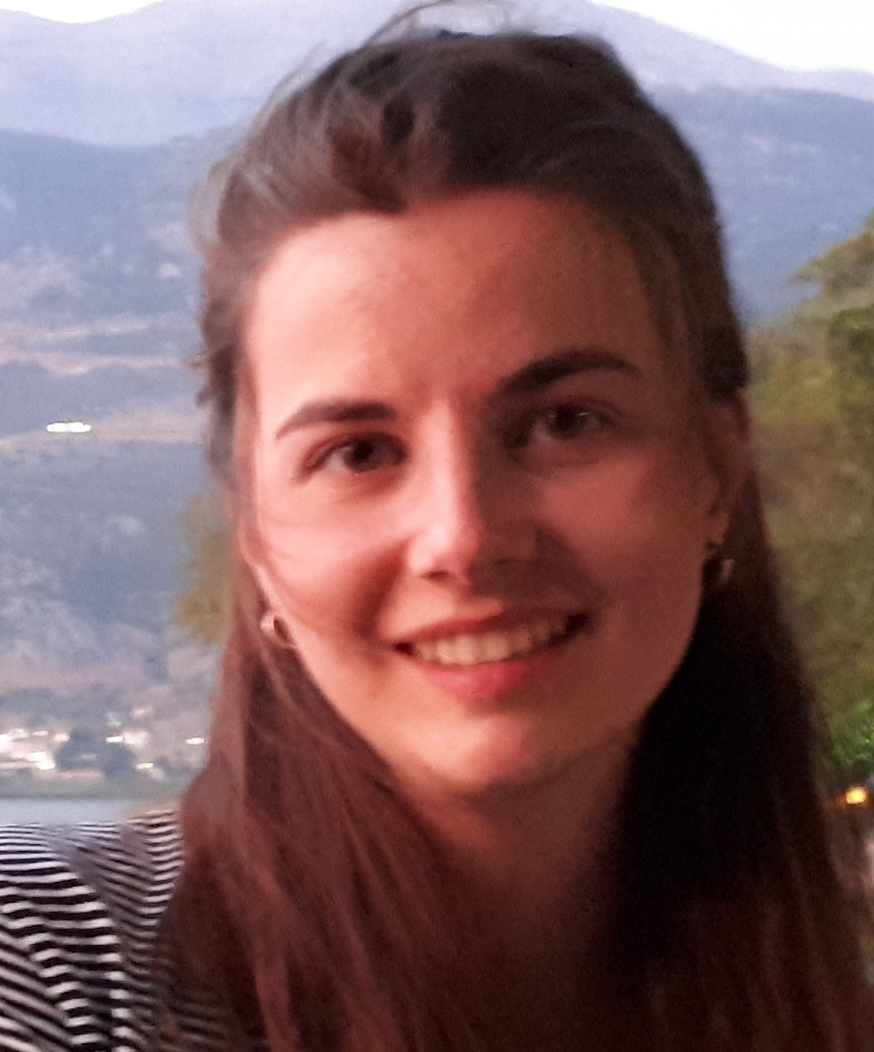 |
Ntorkou Marianna | MSc, c.PhD |
Course Organization
ECTS: 8
Lectures: 9
Laboratory exercise: 5
Workload
200 – 240 hours
Lectures/Workshops: 70 hours
Personal effort: 130 hours
Course Lectures
Week | Faculty | Teaching method | Description of teaching unit |
|
1 | Zacharis Konstantinos Asst. Prof. of Pharm. Analysis, AUTH | Theory | Instrumental separation techniques in Pharmaceutical Analysis (Part I) |
|
2 | Zacharis Konstantinos Asst. Prof. of Pharm. Analysis, AUTH | Theory | Instrumental separation techniques in Pharmaceutical Analysis (Part ΙI) |
|
3 | Zacharis Konstantinos Asst. Prof. of Pharm. Analysis, AUTH | Lab
| Familiarization with HPLC instrument operation – Study of the effect of: elution power, column temperature and flow rate, on the separation of paracetamol-caffeine. |
|
4 | Zacharis Konstantinos Asst. Prof. of Pharm. Analysis, AUTH | Lab | Determination of paracetamol and caffeine in effervescent tablets by HPLC |
|
5 | Zacharis Konstantinos Asst. Prof. of Pharm. Analysis, AUTH | Lab | Determination of furosemide in tablets by HPLC. Dose uniformity control. Statistical processing of results |
|
6 | Zacharis Konstantinos Asst. Prof. of Pharm. Analysis, AUTH | Lab | Determination of structure-related impurities in sildenafil citrate API (result processing) |
|
7 | Markopoulou Catherine. Prof. of Pharm. Analysis | Theory | Chromatographic column theory (part I) |
|
8 | Markopoulou Catherine. Prof. of Pharm. Analysis | Theory | Chromatographic column theory (part II) |
|
9 | Markopoulou Catherine. Prof. of Pharm. Analysis | Theory | Theory of Mass Spectrometry (part I)
|
|
10 | Markopoulou Catherine. Prof. of Pharm. Analysis | Theory | Theory of Mass Spectrometry (part II)
|
|
11 | Kouskoura Maria MSc, PhD Pharm. Analysis | Theory | Assay of APIs in biological samples – Bioanalysis and Sample Pretreatment |
|
12 | Natalia Manousi, MSc, PhD Analytical Chemistry AUTH | Theory | Modern sample pretreatment techniques |
|
13 | Natalia Manousi, MSc, PhD Analytical Chemistry AUTH | Lab | ESI-LC/MS, Instrument demonstration. Determination of active with (positive/negative mode ) |
|
14 | Kafkala Stella, MSc, cPhD, Analytical Development Director, Genepharm | Theory | Method validation, forced degradation studies |
|
15 | Kouskoura Maria MSc, PhD Pharm. Analysis | Theory | Chemical analysis of pharmaceutical APIs and raw materials |
|
| Exams Theory/Laboratory | |||
Examination of the course
Final exam
Course Essays
Related Bibliography
Introduction to Pharmaceutical Analytical Chemistry (2nd ed.)
Author: Stig Pedersen-Bjergaard, Bente Gammelgaard, Trine Gronhaug Halvorsen
Edited by: Konstantinos K. Zaharis, Aikaterini K. Markopoulou
ISBN: 9789605836061
Link
